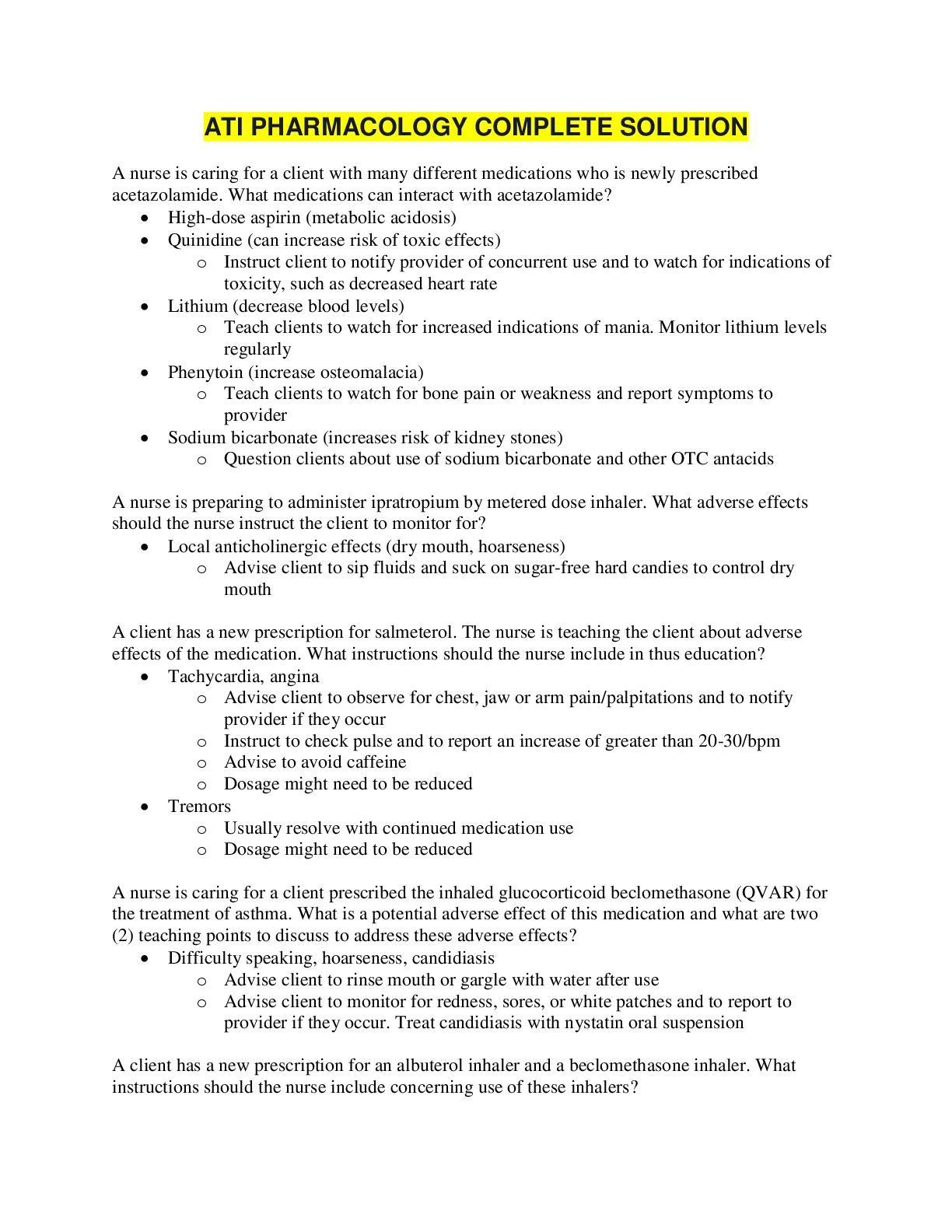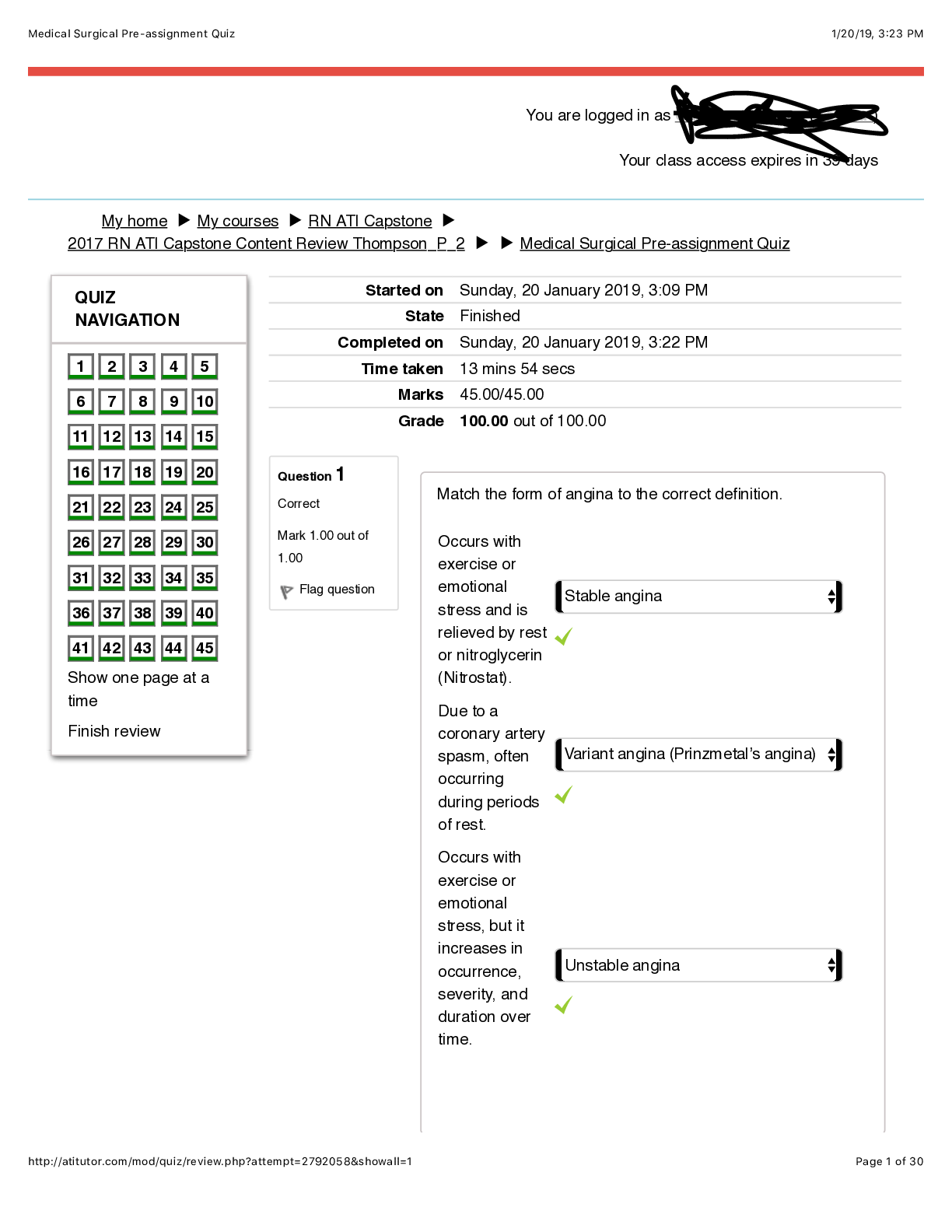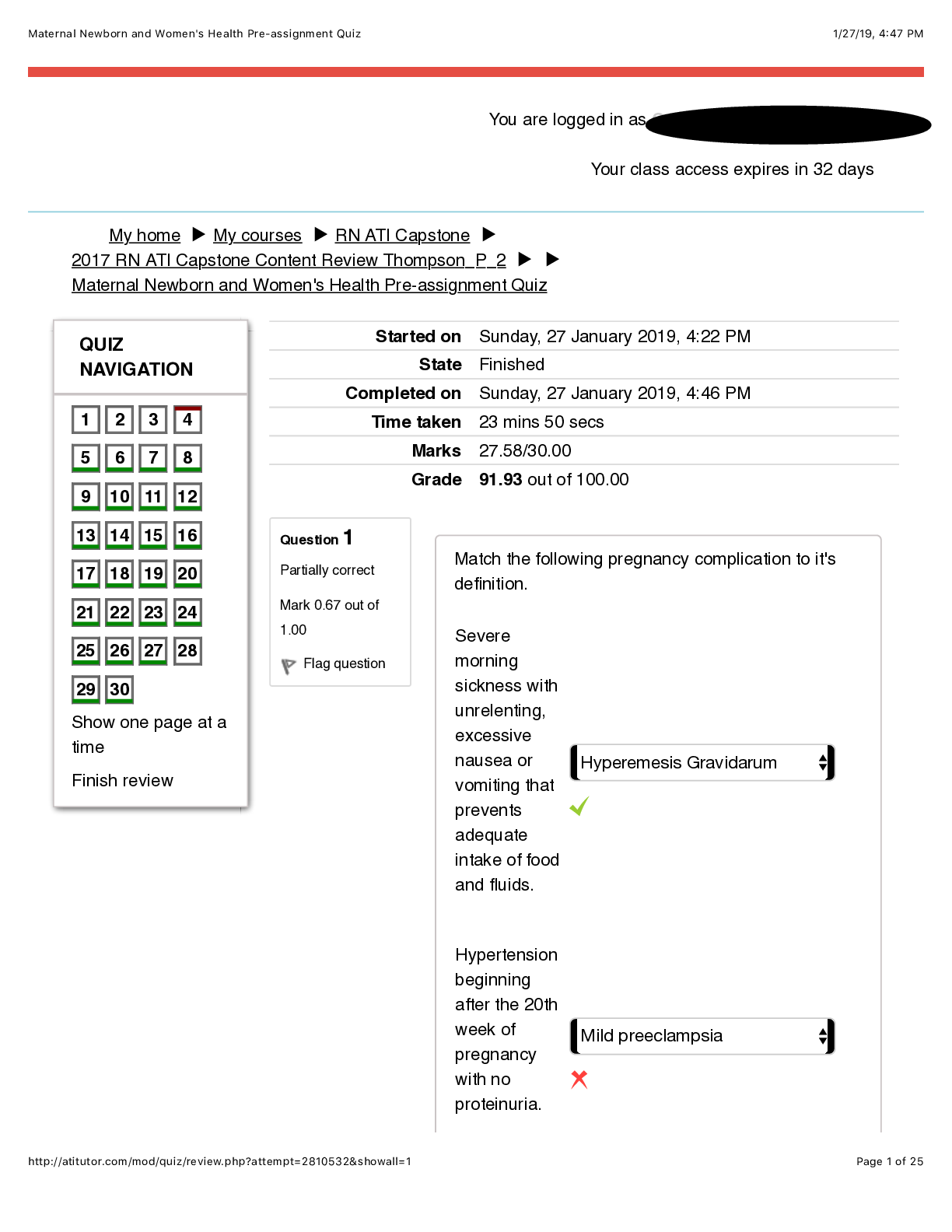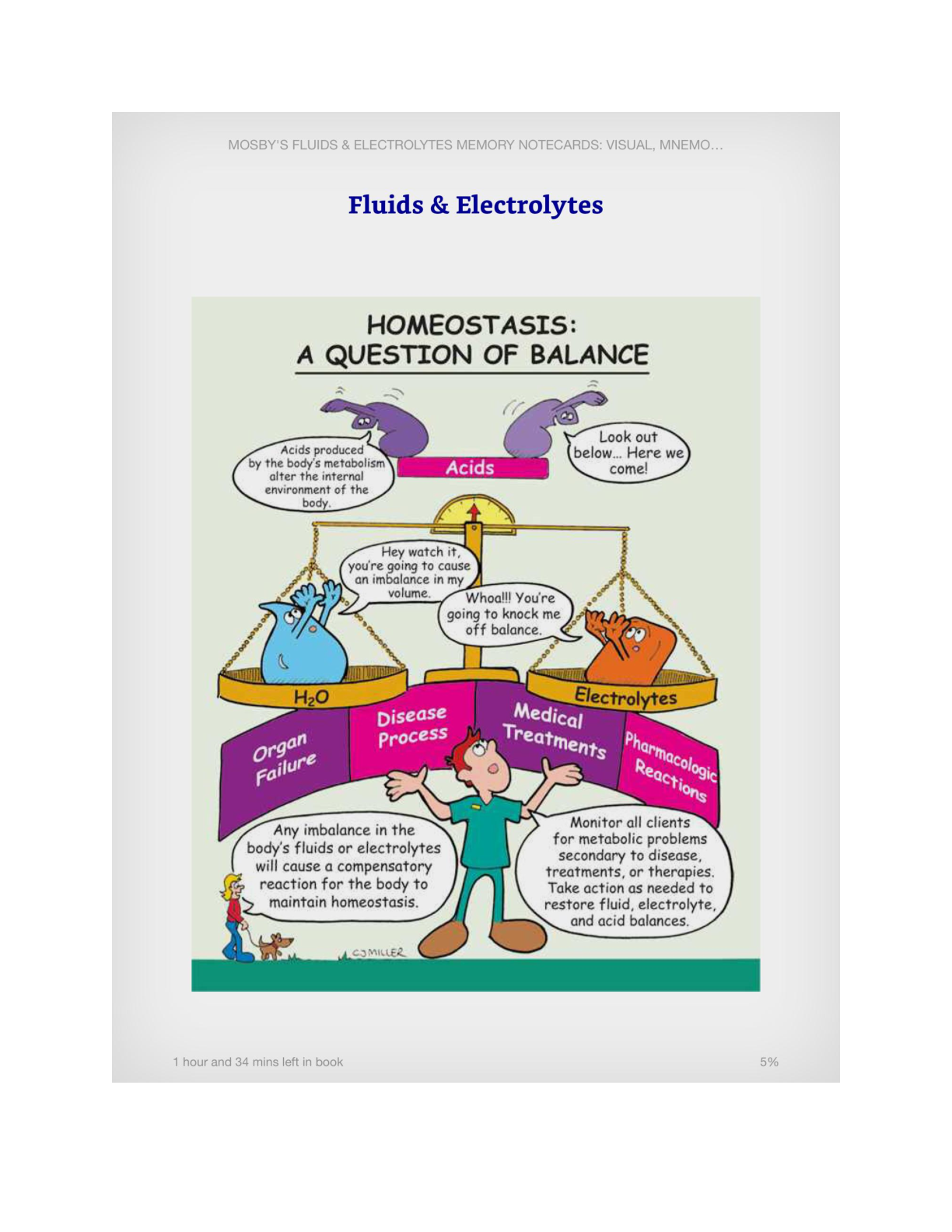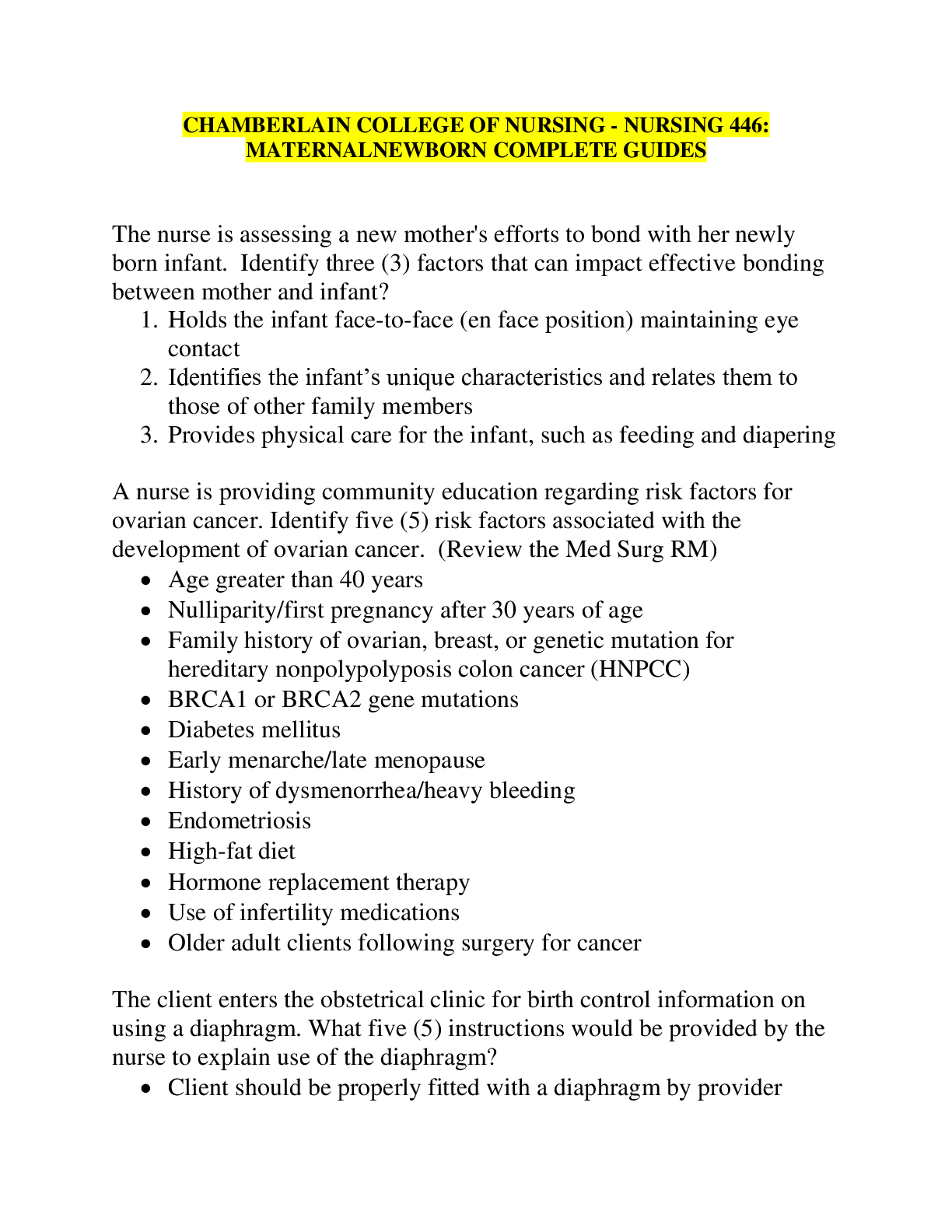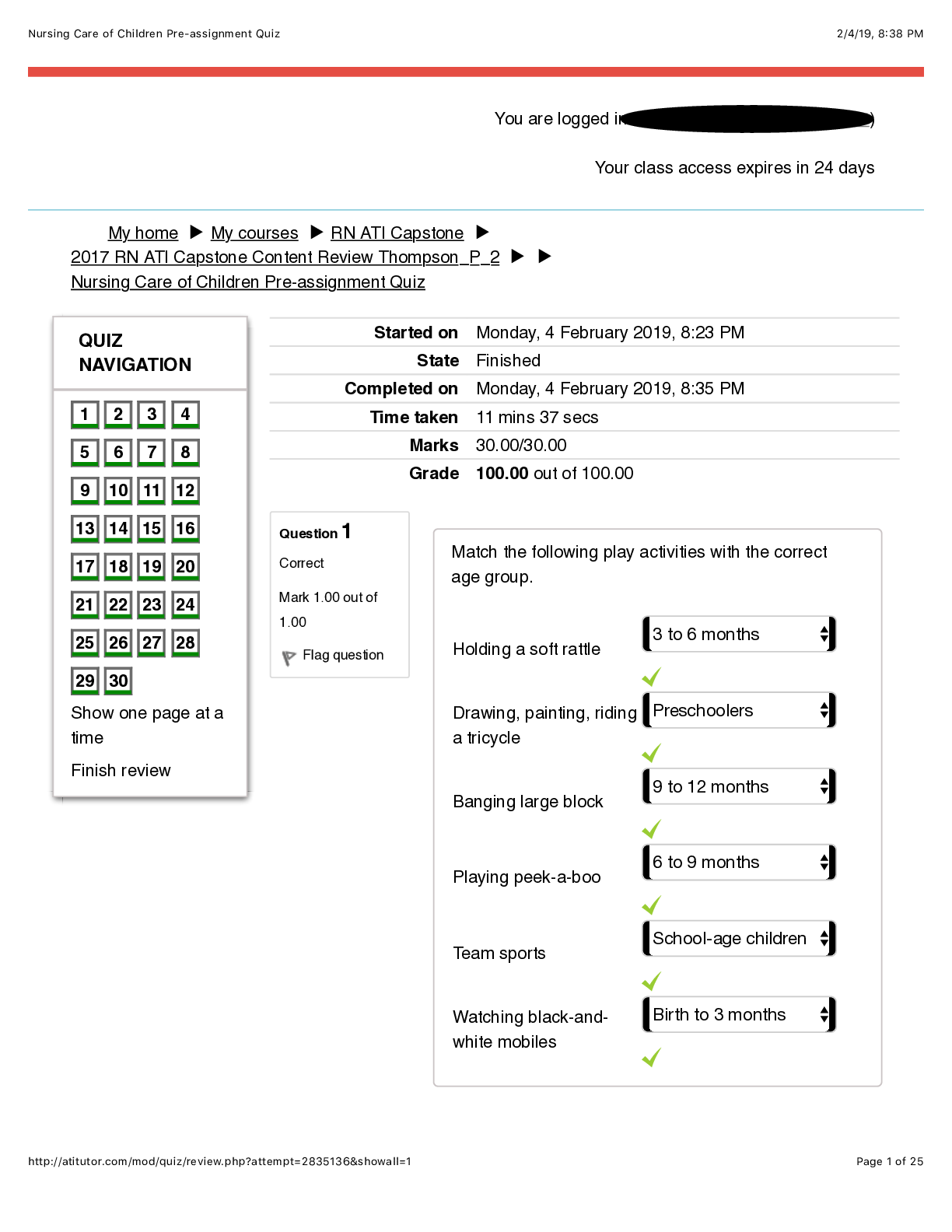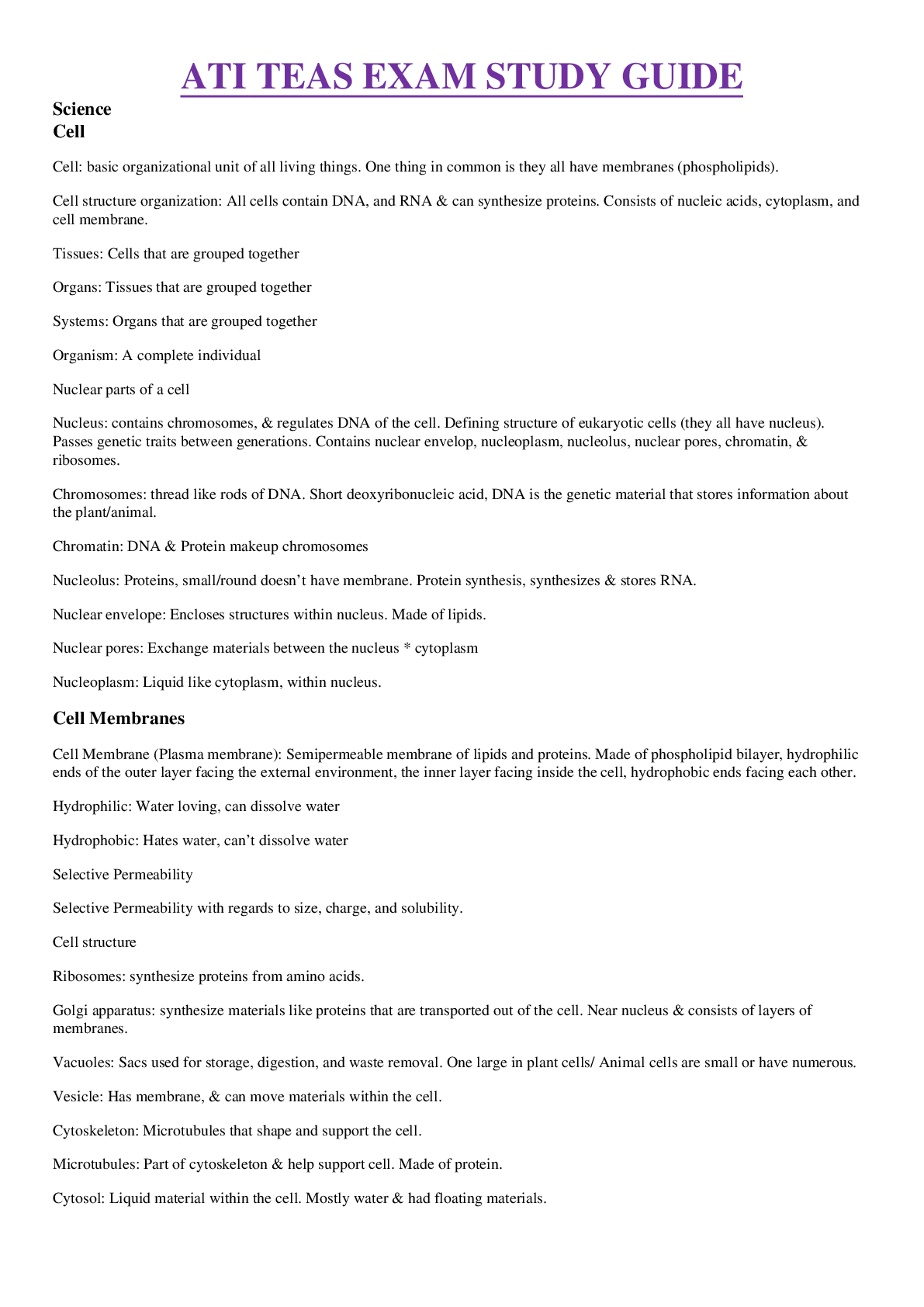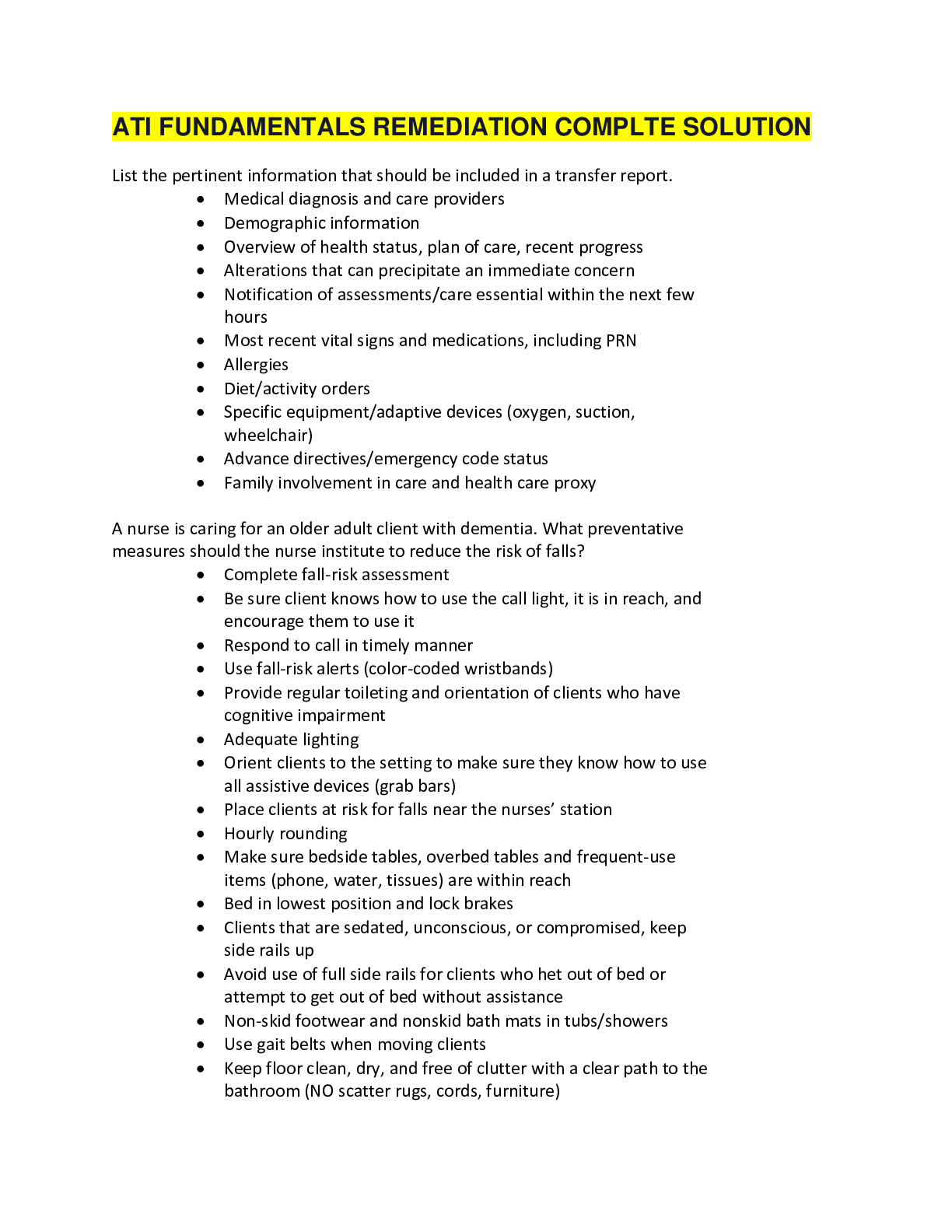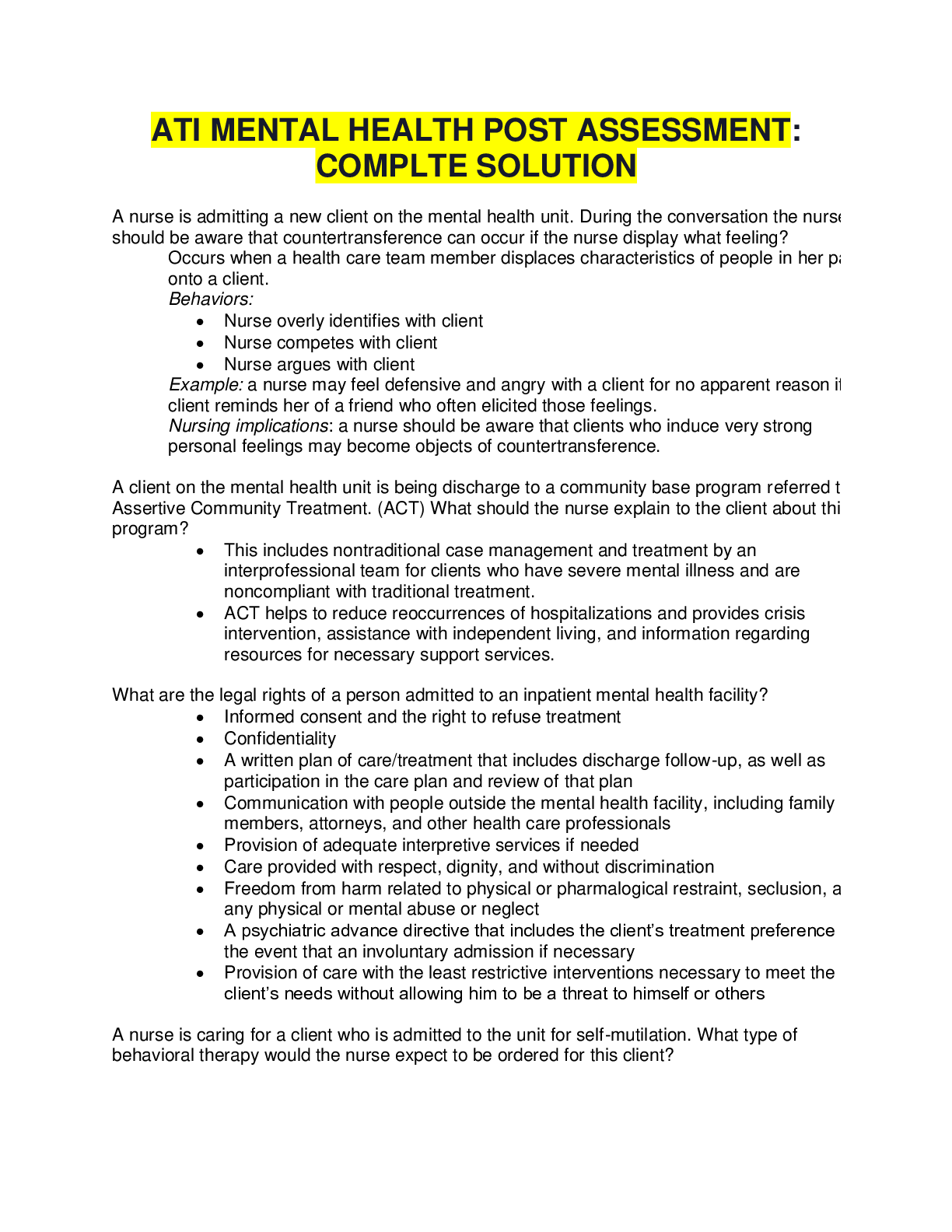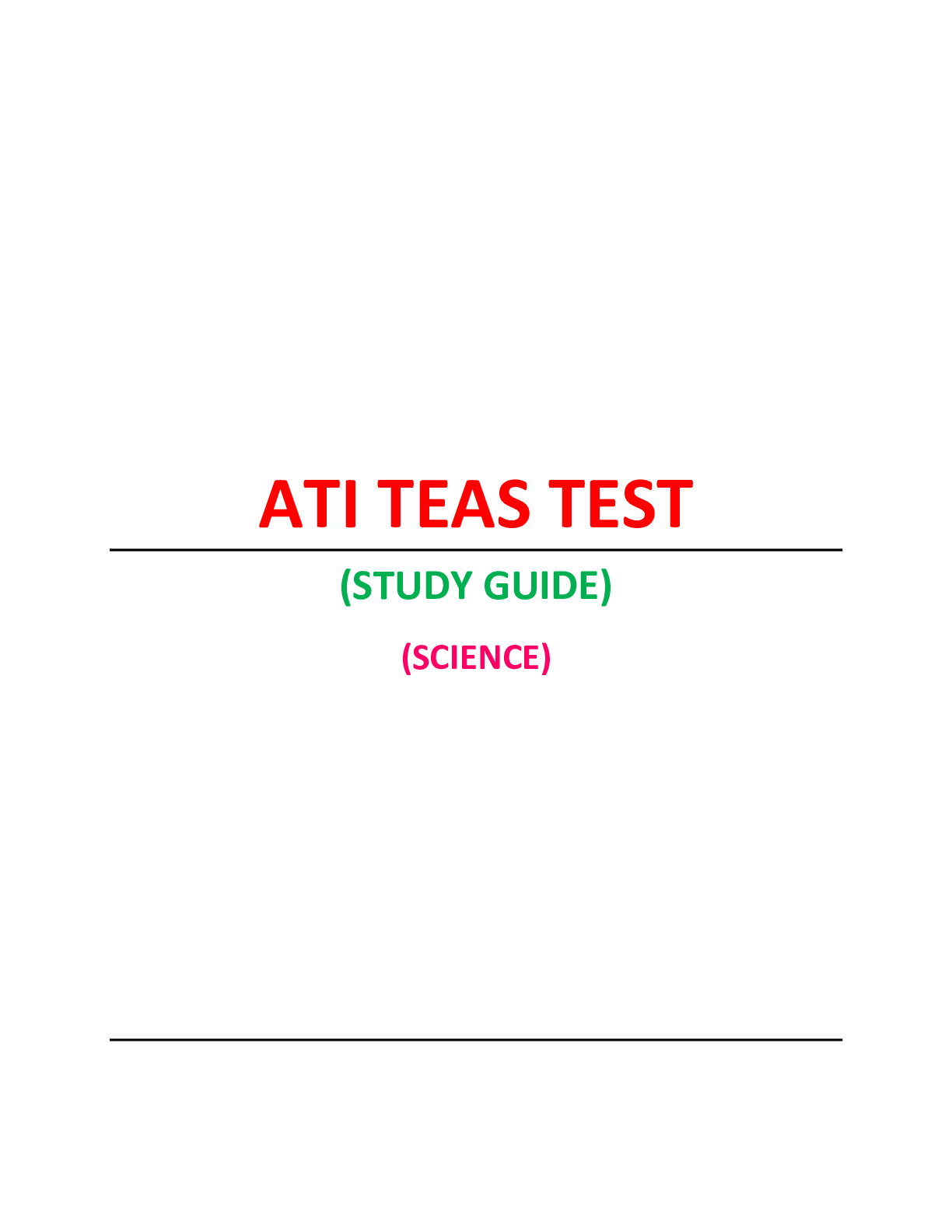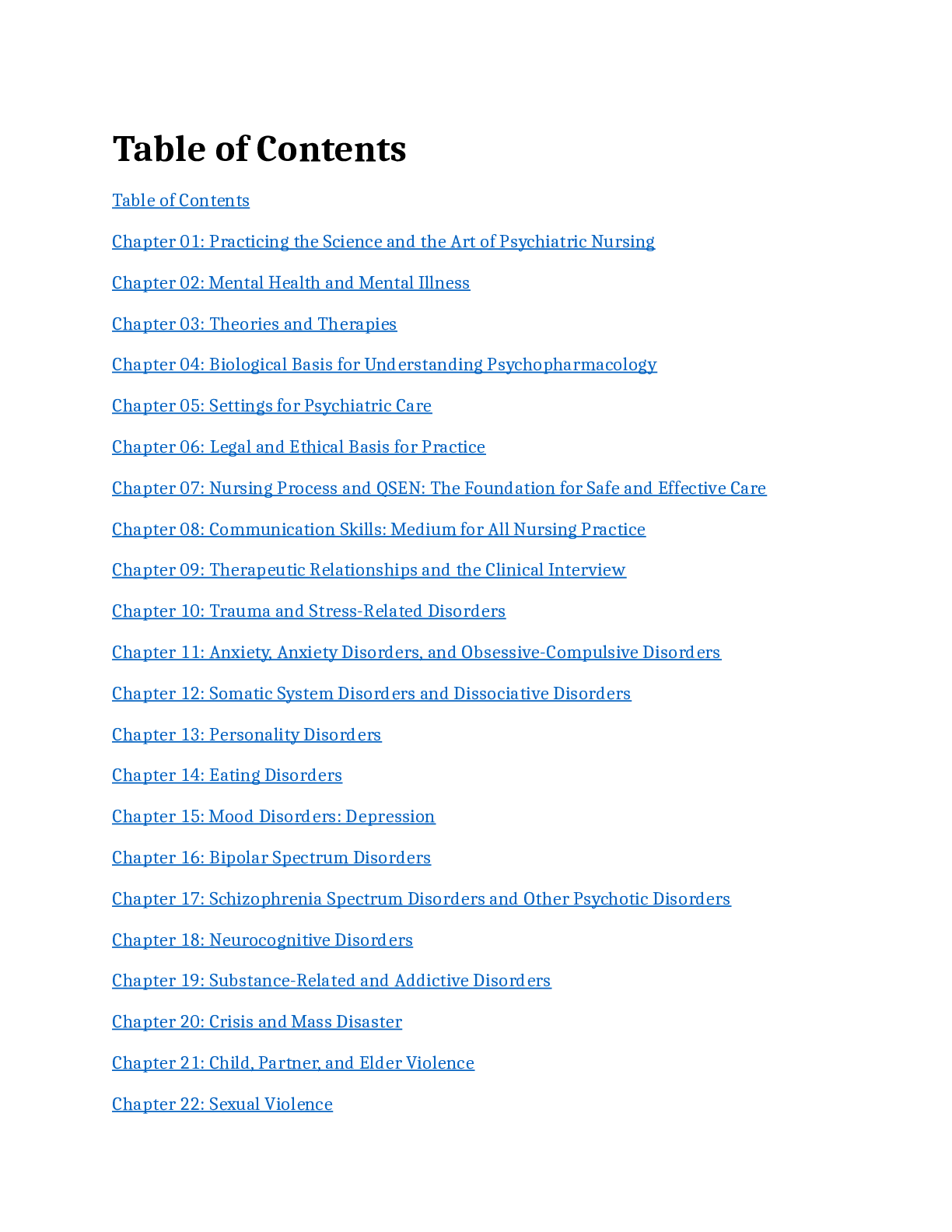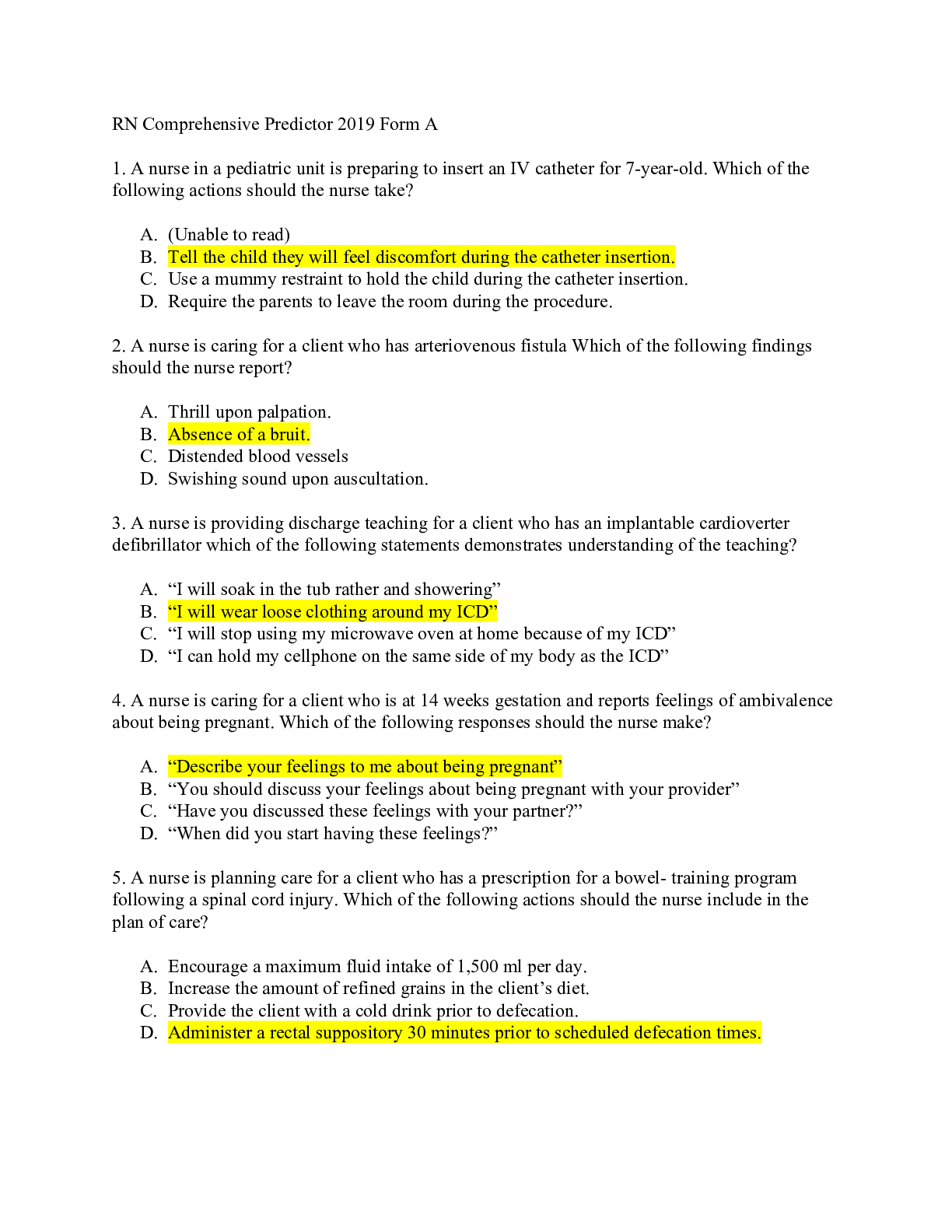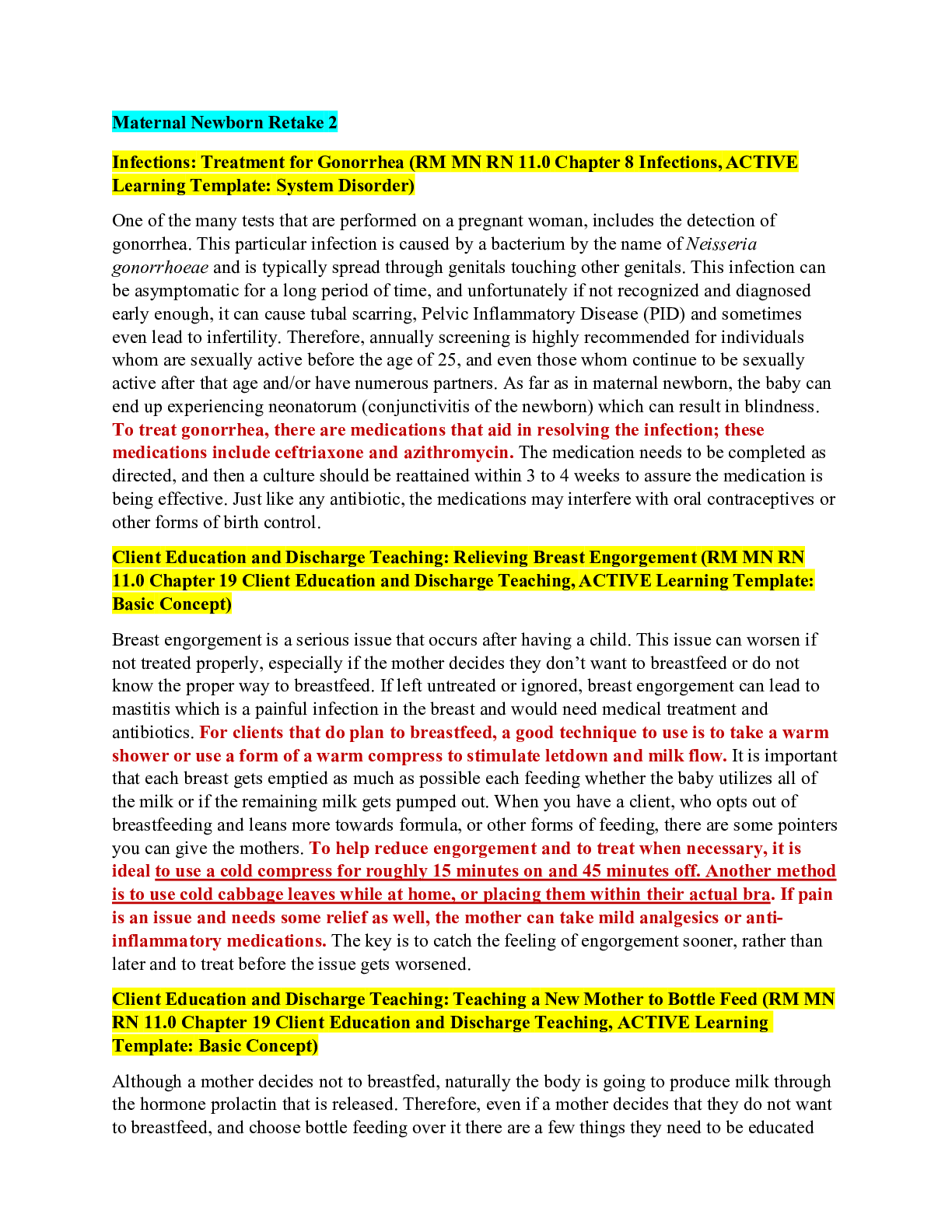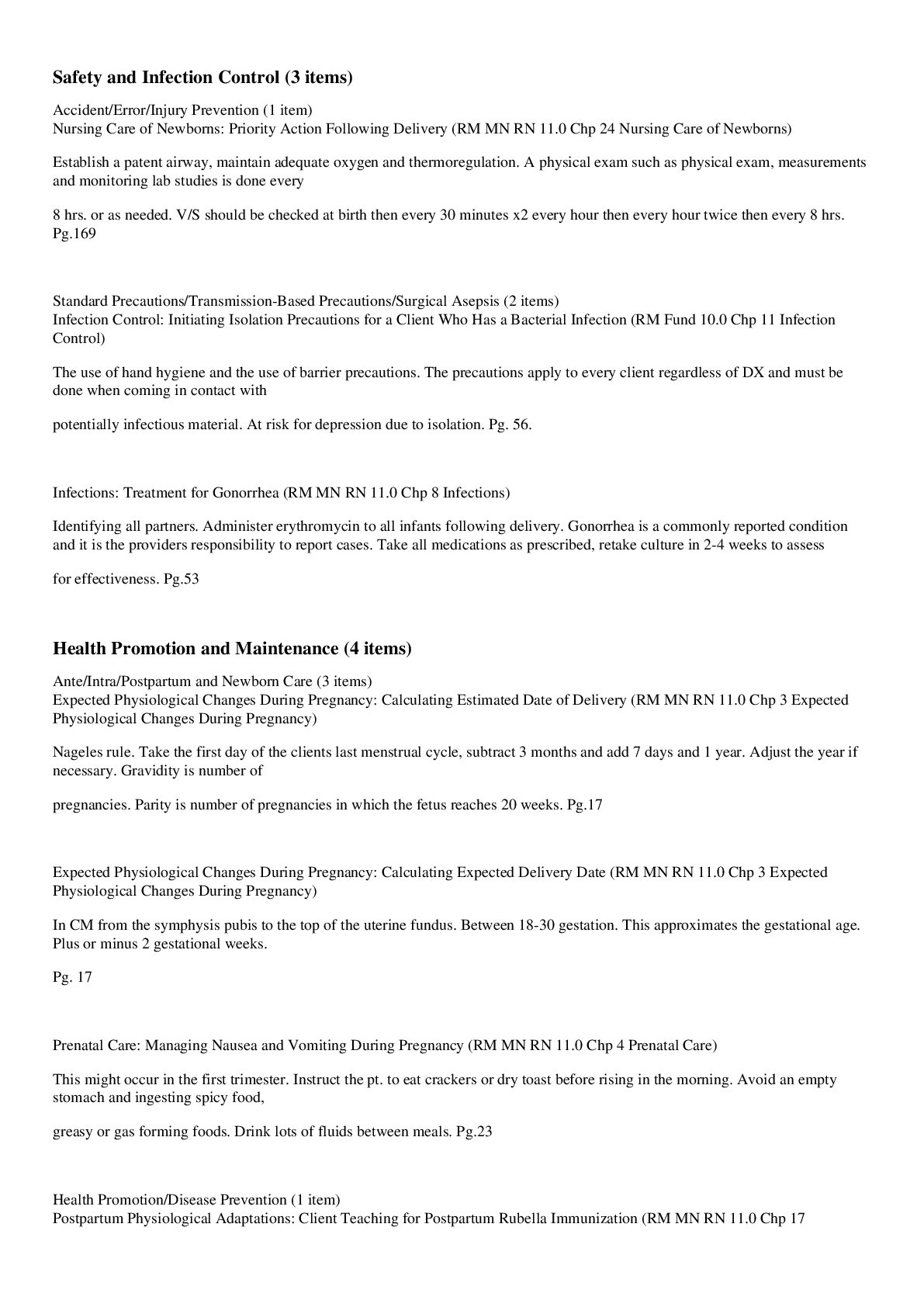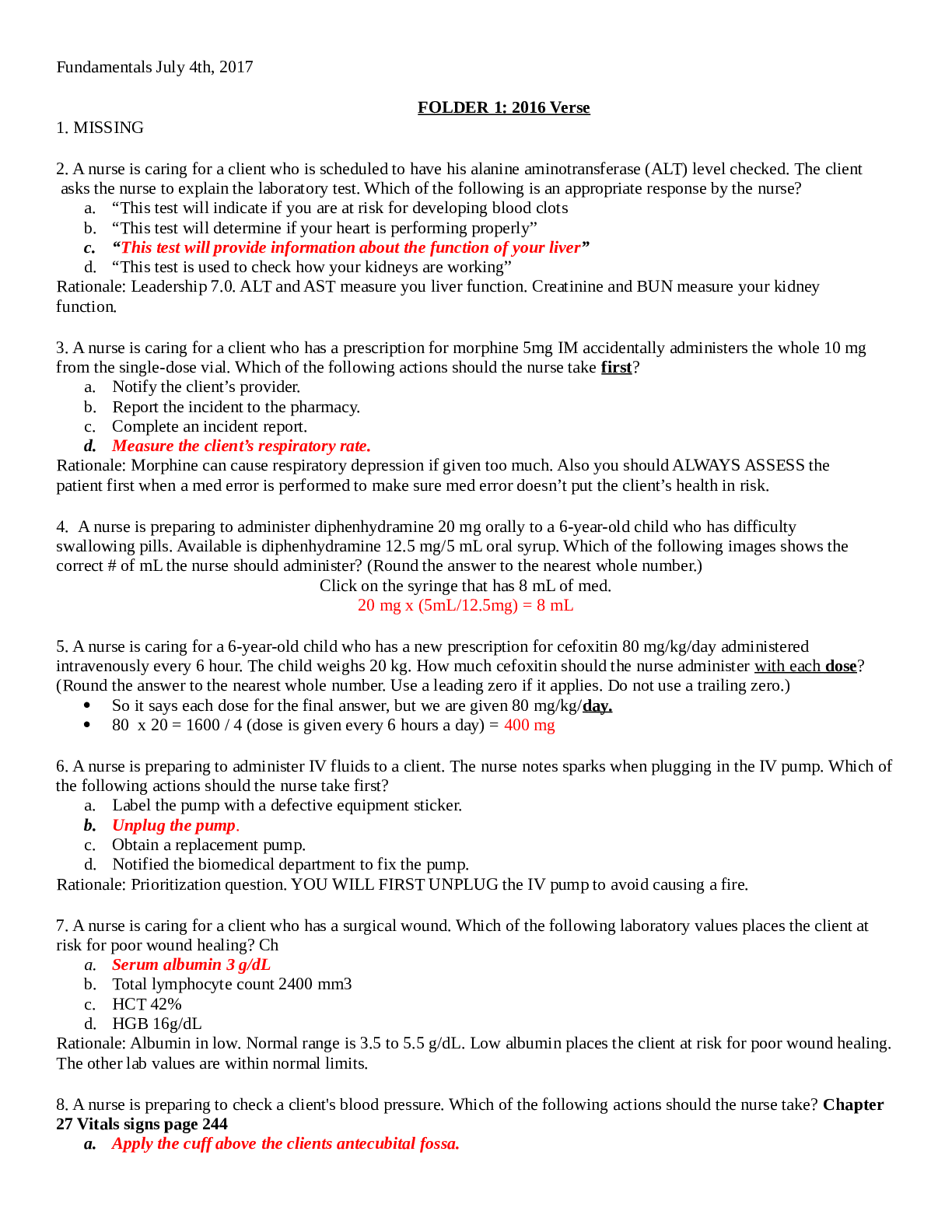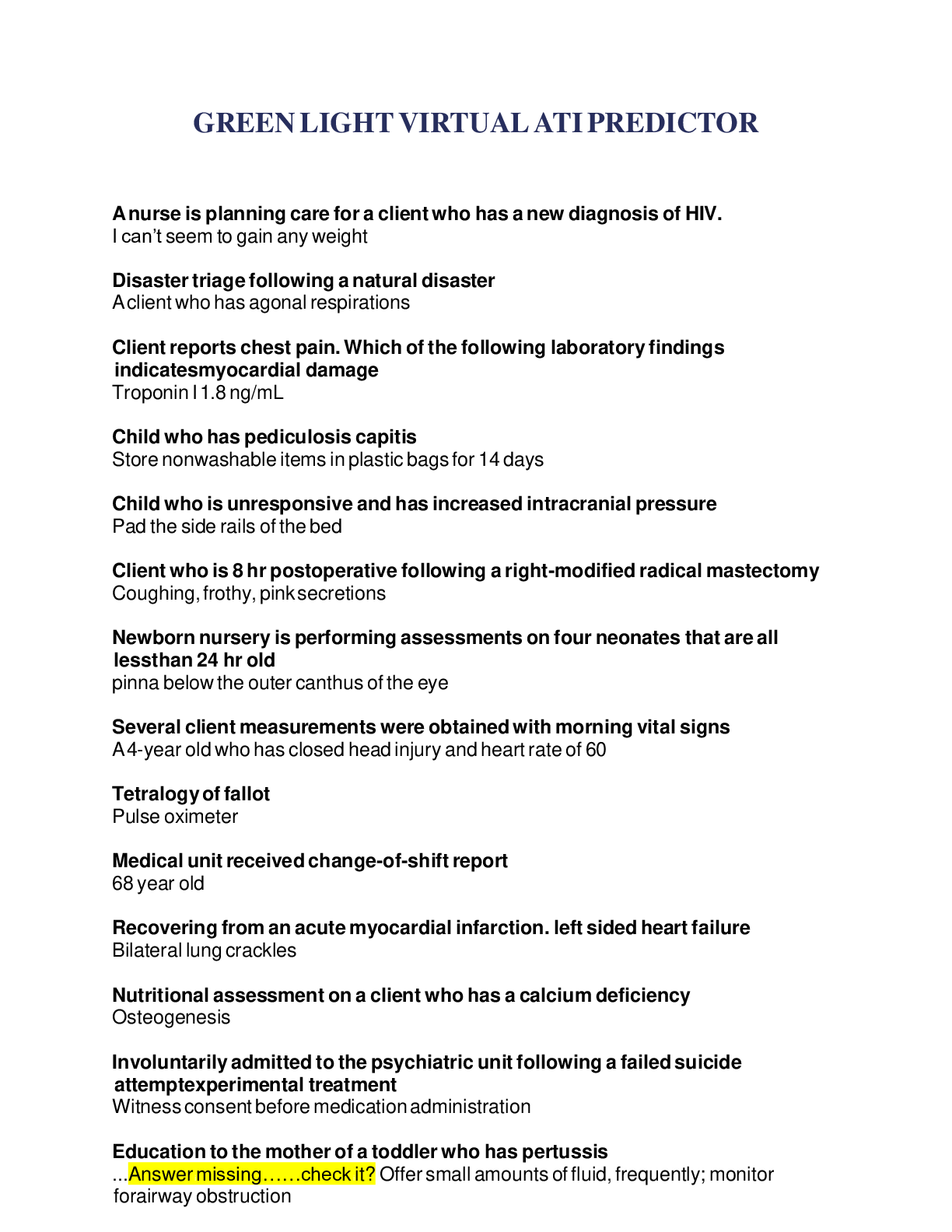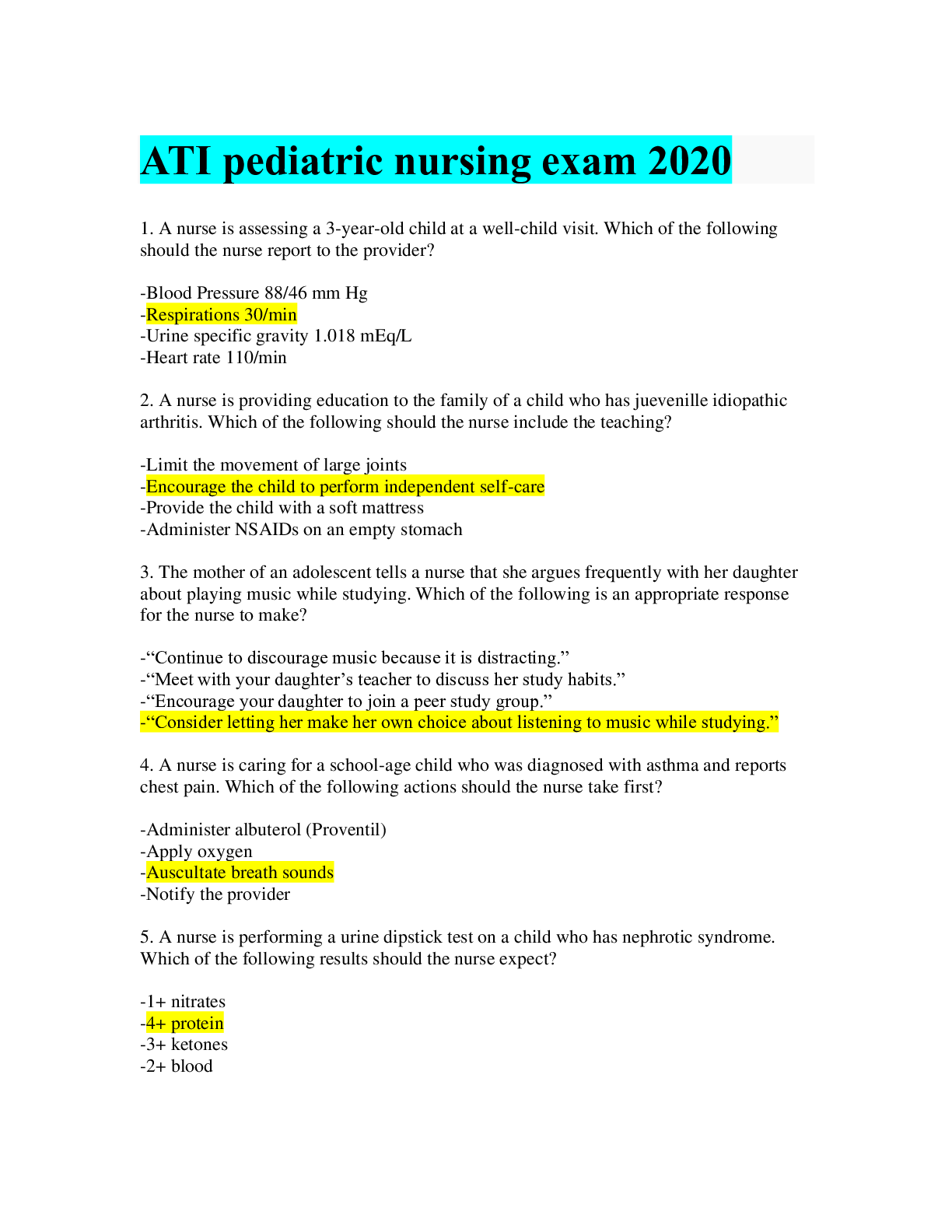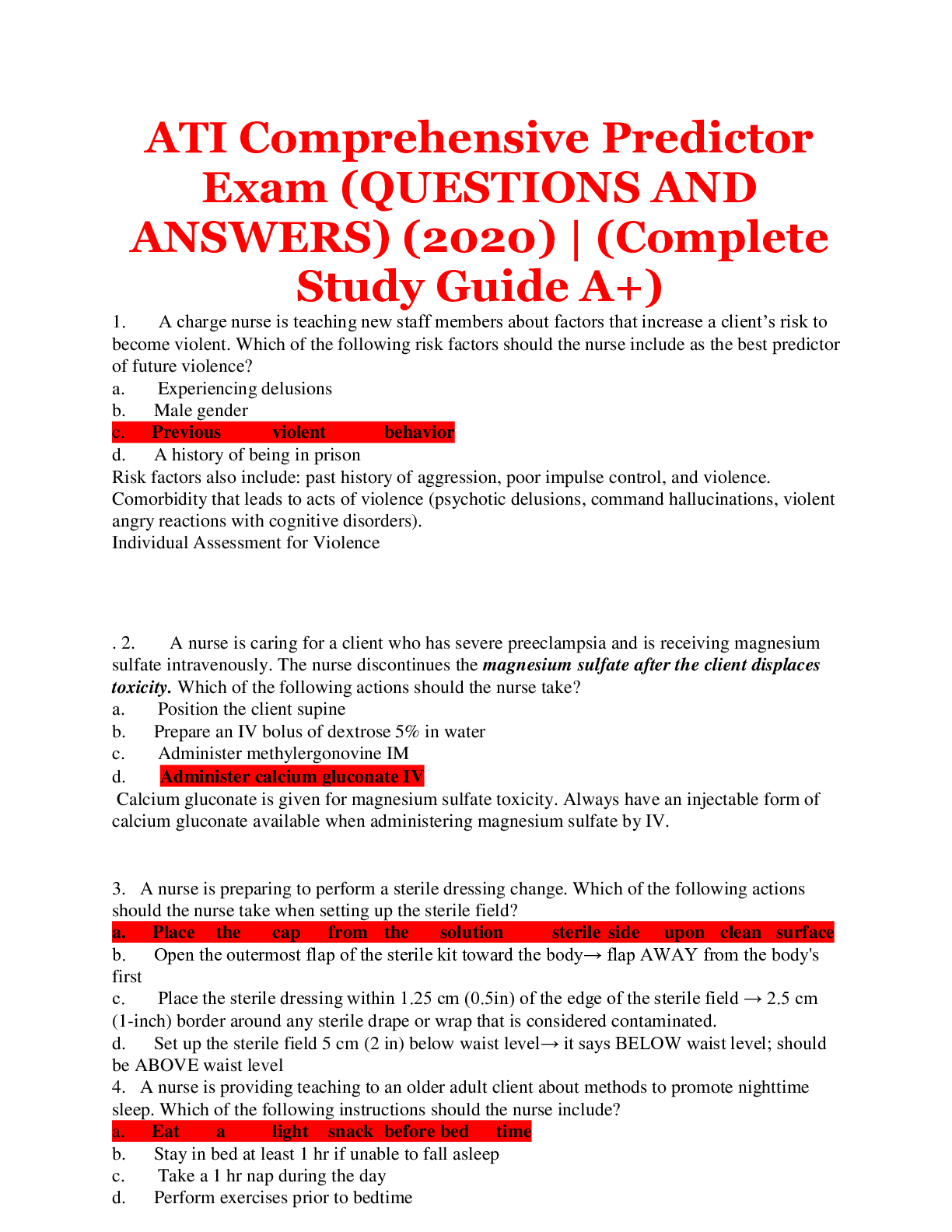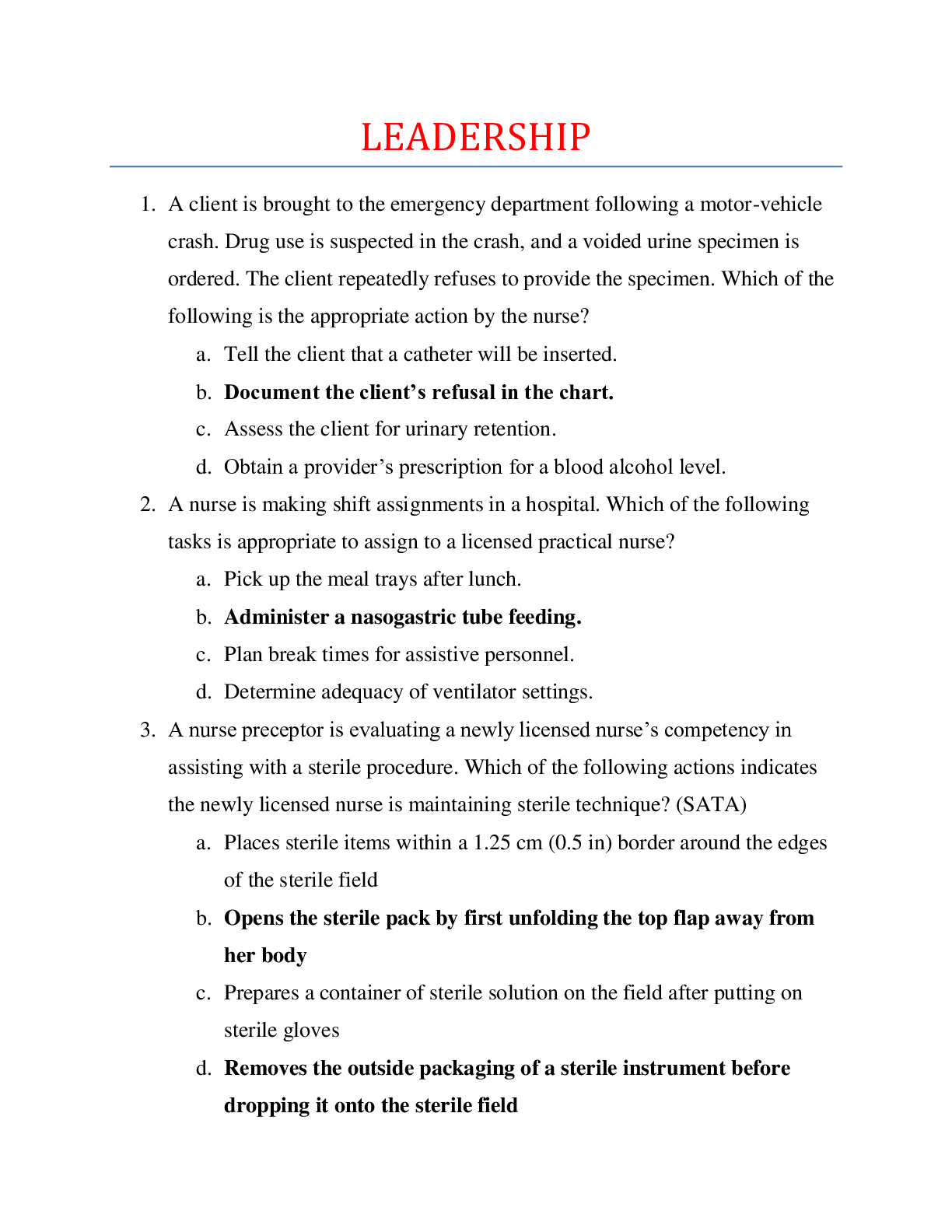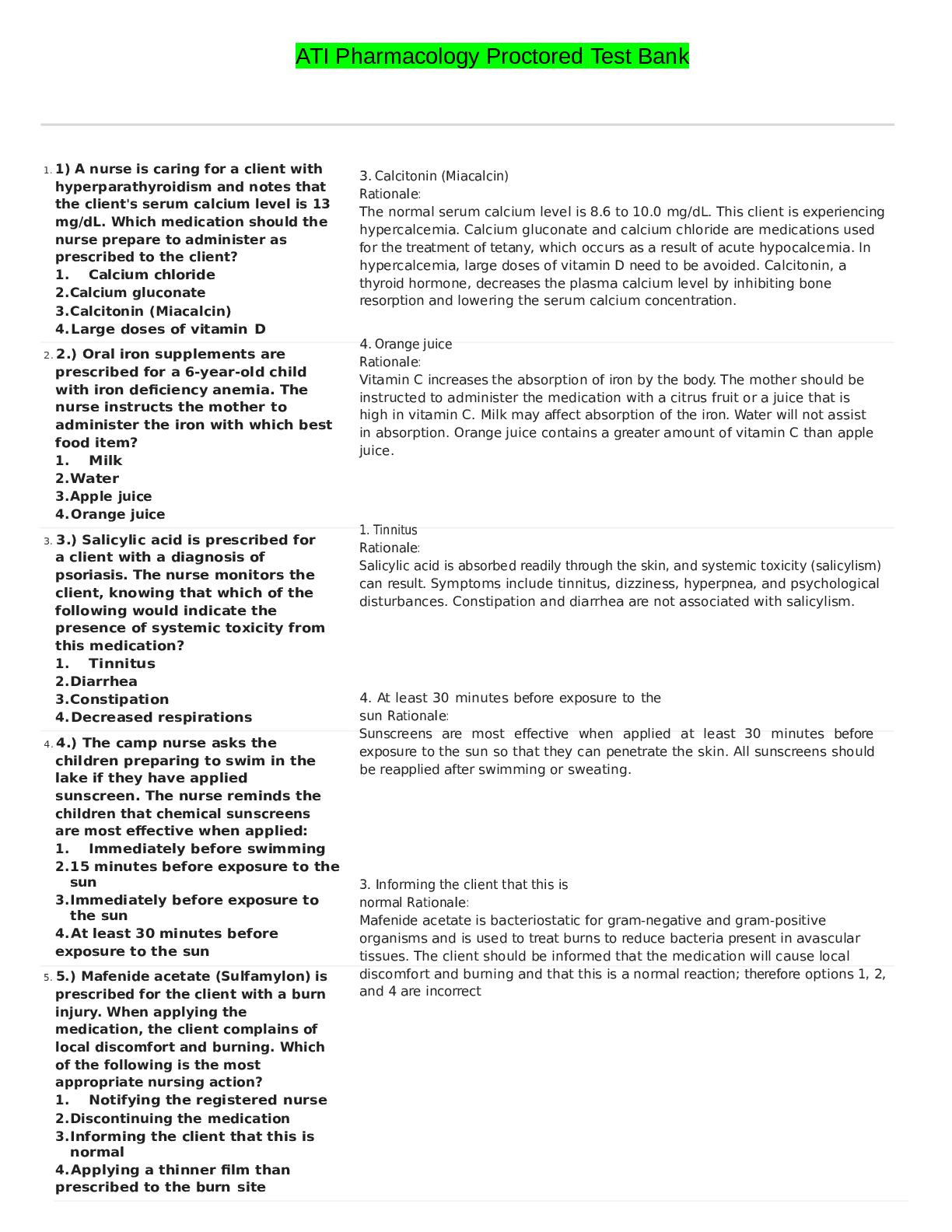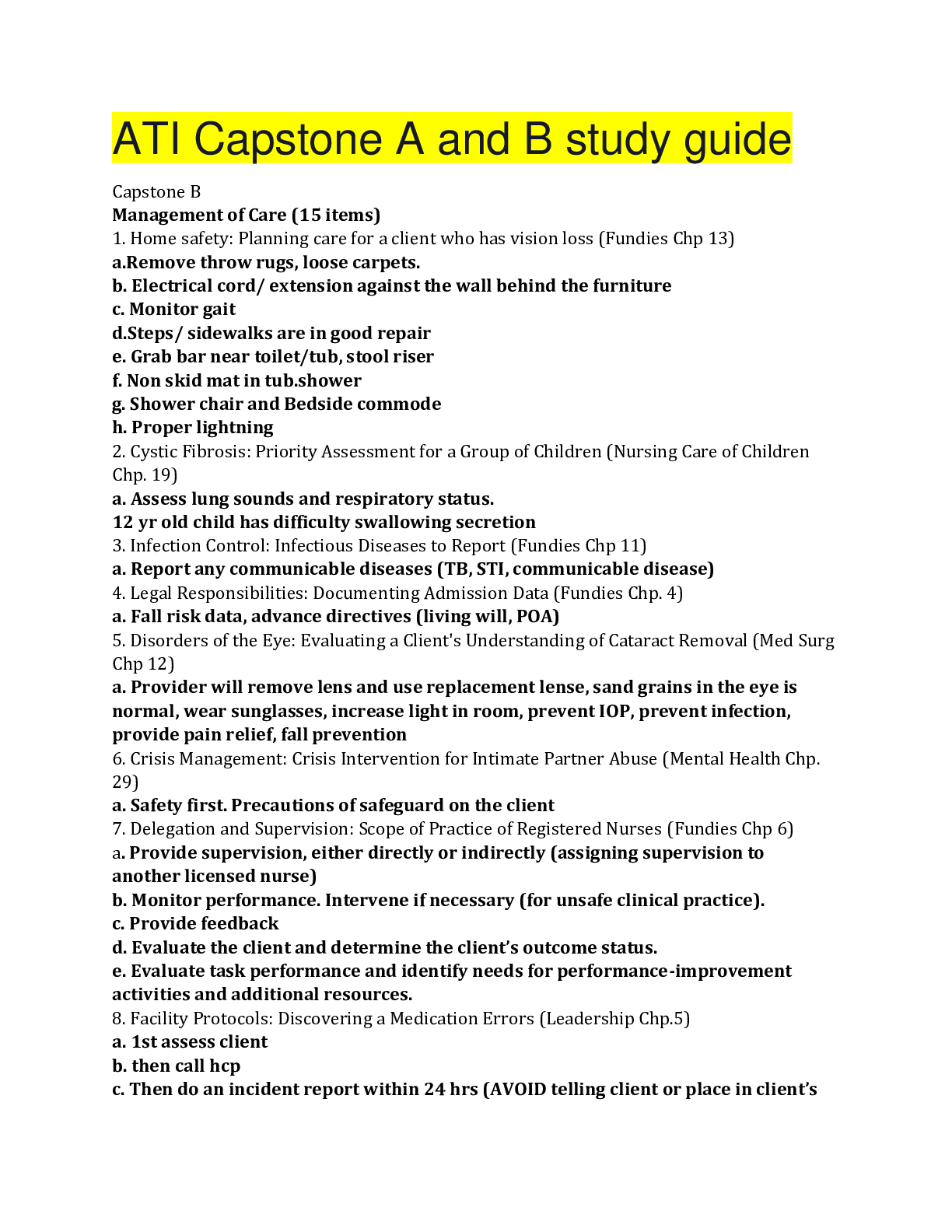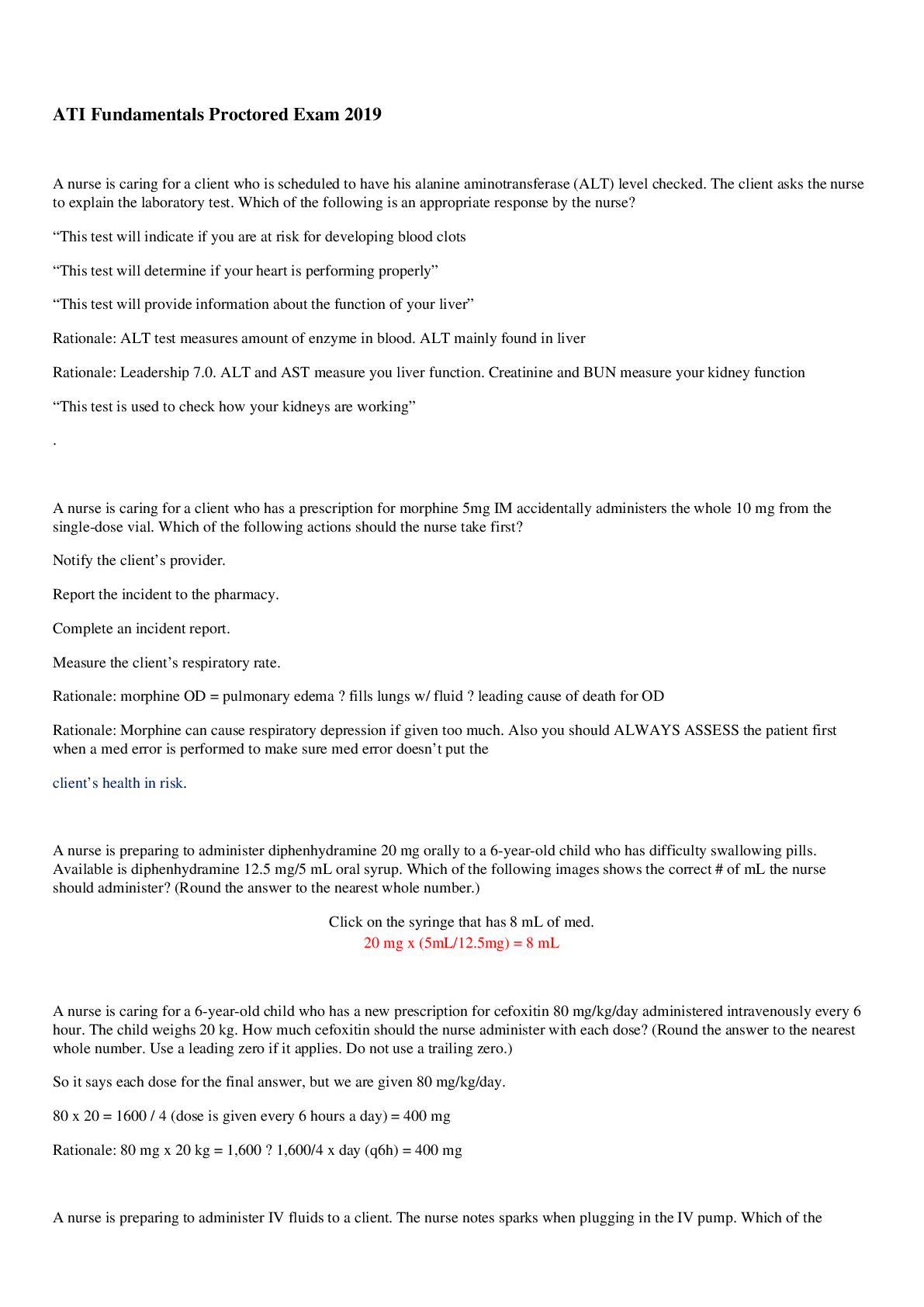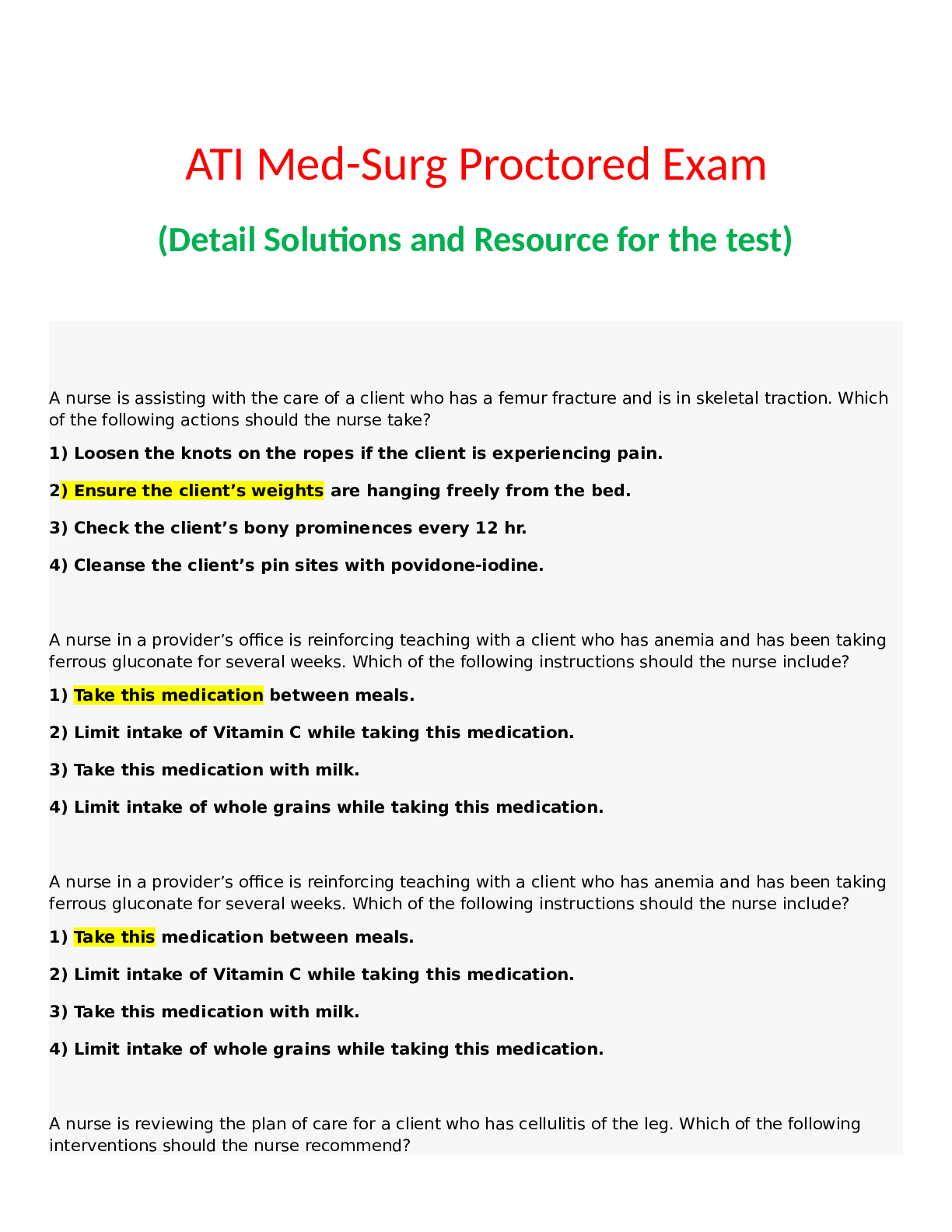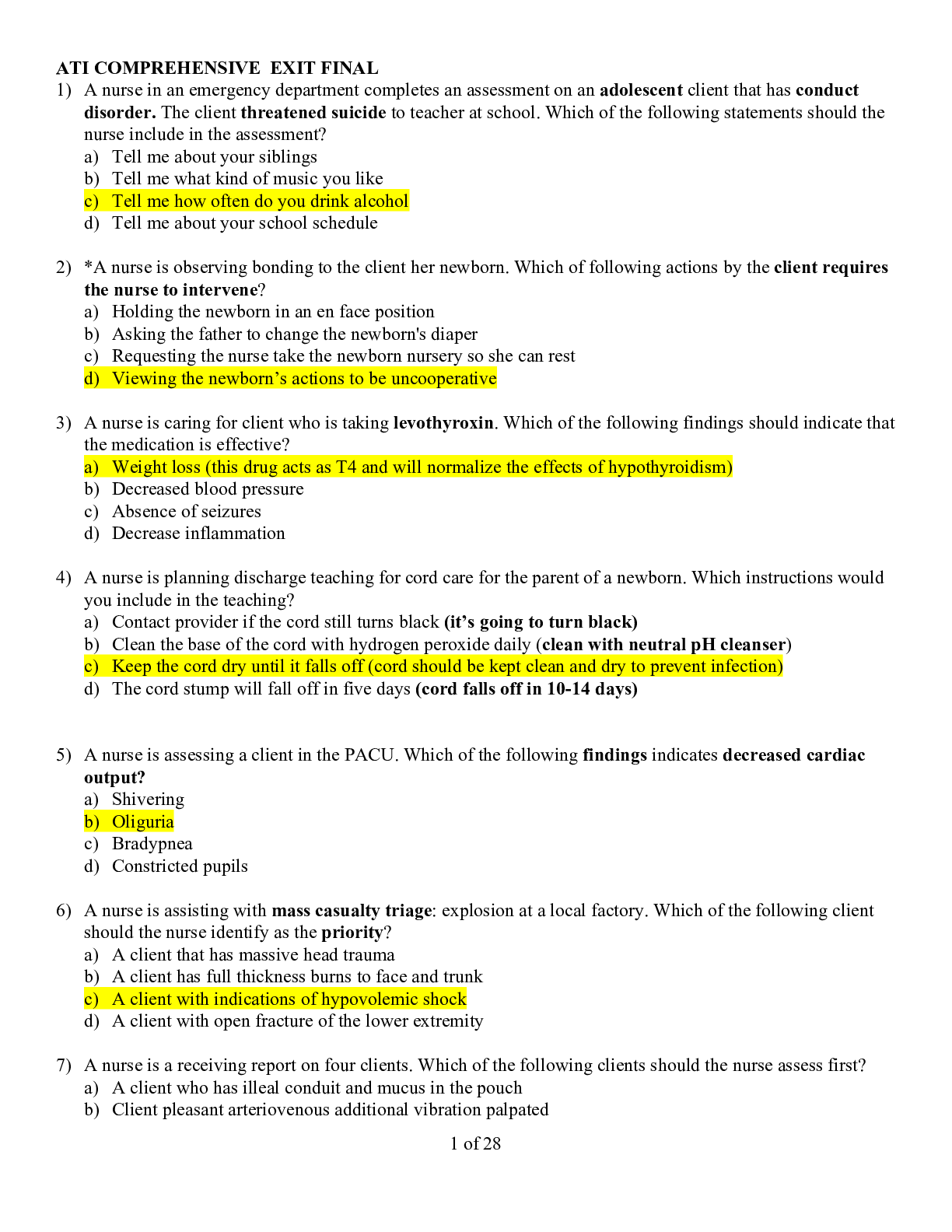Health Care > QUESTIONS and ANSWERS > ATI MED SURG REMEDIATION COMPLTE SOLUTION: LATEST-2021, COMPLETE GUIDE (All)
ATI MED SURG REMEDIATION COMPLTE SOLUTION: LATEST-2021, COMPLETE GUIDE
Document Content and Description Below
A nurse is caring for a client following a bone marrow biopsy. What information should the nurse include in the discharge education? • Teach the client to report excessive bleeding and evidence of... infection to the provider. • Teach the client to check the biopsy site daily. Keep the dressing clean, dry, and intact. • If sutures are in place, remind the client to return in 7-10 days to have them removed. What dietary education should the nurse provide to a client diagnosed with a hiatal hernia? • Avoid eating immediately prior to going to bed. • Avoid foods and beverages that decrease LES pressure (fatty and fried foods, chocolate, coffee, peppermint, spicy foods, tomatoes, citrus fruits, and alcohol). A nurse is caring for a client with chronic gastritis. Provide three (3) dietary recommendations the nurse should include in client education? • Assist the client in identifying foods that are triggers. • Provide small, frequent meals and encourage the client to eat slowly. • Advise the client to avoid alcohol, caffeine, and foods that can cause gastric irritation. A nurse is caring for a client who has been admitted with renal calculi. List three (3) interventions the nurse will take in the management of renal calculi. • Strain all urine to check for passage of the calculus and save the calculus for laboratory analysis. • Encourage increased oral intake to 3L/day unless contraindicated. • Encourage ambulation to promote passage of calculus. Define the following types of urinary incontinence: Stress, urge, overflow, reflex, functional, total. • Stress: loss of small amounts of urine from increased abdominal pressure without bladder muscle contraction with laughing, sneezing, or lifting. • Urge: inability to stop urine flow long enough to reach the bathroom due to an overactive detrusor muscle with increased bladder pressure. • Overflow: urinary retention from bladder overdistention and frequent loss of small amounts of urine due to obstruction of the urinary outlet or an impaired detrusor muscle. • Reflex: involuntary loss of moderate amount of urine usually without warning due to hyperreflexia of the detrusor muscle, usually from spinal cord dysfunction. • Functional: loss of urine due to factors that interfere with responding to the need to urinate, such as cognitive, mobility, and environmental barriers. • Total: unpredictable, involuntary loss of urine that generally does not respond to treatment. A nurse is caring for a client with pneumonia. What are three (3) physical [Show More]
Last updated: 1 year ago
Preview 1 out of 6 pages
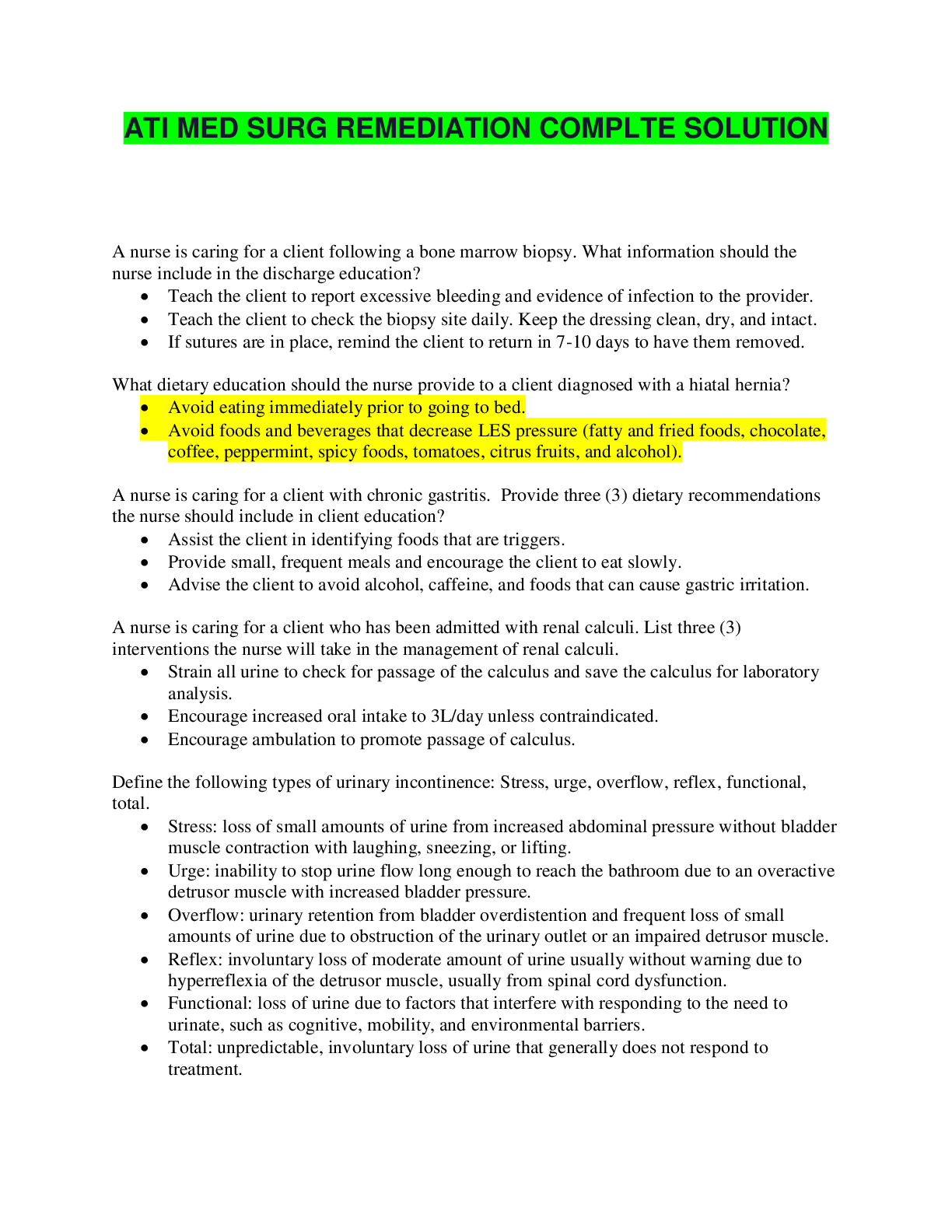
Reviews( 0 )
Document information
Connected school, study & course
About the document
Uploaded On
Jul 04, 2021
Number of pages
6
Written in
Additional information
This document has been written for:
Uploaded
Jul 04, 2021
Downloads
0
Views
59

